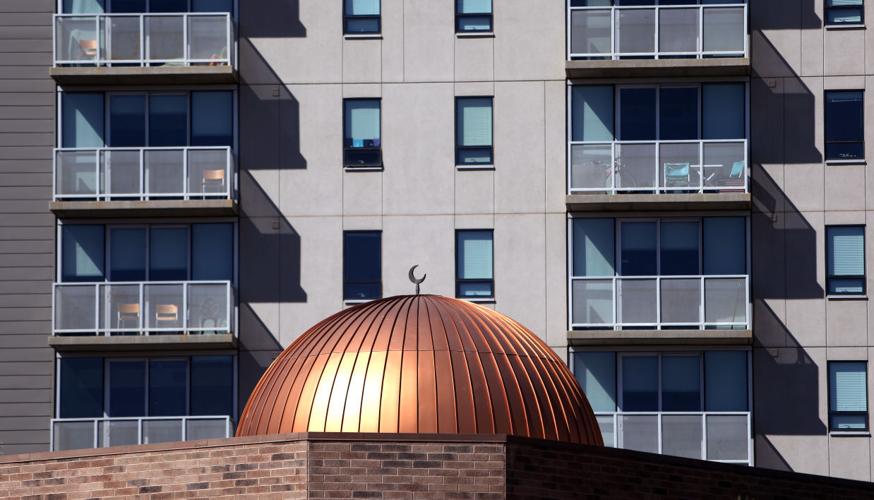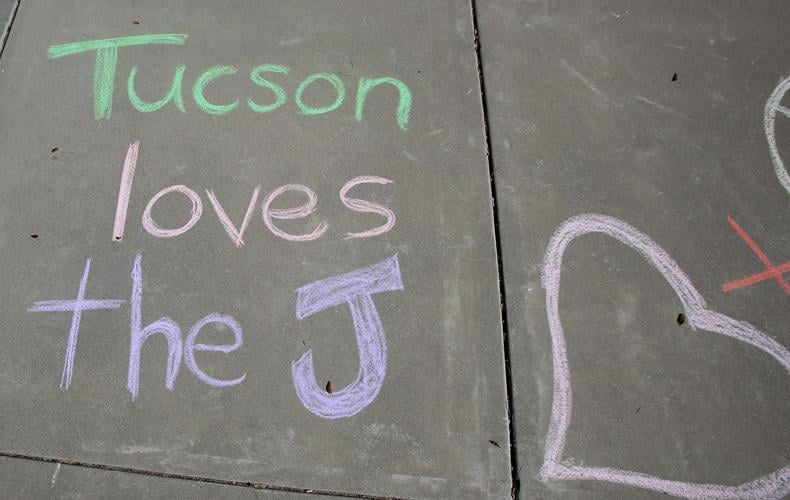A proposed city ordinance would raise penalties for those convicted of committing misdemeanors that were motivated by hate or bias against the victim.
Under Tucson’s current hate-crime law, only felony offenders are at risk of harsher penalties if their offense is proven to be driven by prejudice against a protected class. That would include victims targeted for their race, religion, gender identity or sexual orientation.
The proposed ordinance would add penalties to bias-driven crimes at the misdemeanor level, such as criminal trespass, disorderly conduct, endangerment, graffiti, harassment and threats or intimidation.
If found guilty of a first misdemeanor offense, the offender would serve at least 10 days in jail and face a $500 fine. On second offense, the minimum punishment would be increased to 20 days in jail and a $1,000 fine. A third or subsequent offense would result in 40 days in jail and a minimum $2,500 fine.
The City Council will vote on a final version of the ordinance on March 21.
Citing a surge in hate crimes reported nationally since the presidential election, Mayor Jonathan Rothschild asked City Attorney Mike Rankin to prepare a hate-crime ordinance that covers misdemeanors, too.
“These are not easy crimes to prove, so when they are proven, there is good reason to penalize,” Rothschild said at the Feb. 22 council meeting.
Arizona Department of Public Safety records show that bias-based offenses don't appear on the rise in Tucson. Only five offenses were recorded as bias-based in 2016 and four in 2015. The 27 reported in 2013 is misleading: That year, officers were tallying bias incidents, not just crimes, because they weren't yet fully trained in reporting criteria, said TPD Sgt. Robert Brandt.
But across Arizona, biased-based offenses increased over the same period, from 223 incidents in 2013 to 291 last year, DPS data show.
While local records don’t show an increase in hate-crime activity in Tucson, Tucson police Capt. Matt Ronstadt said hate crimes are notoriously underreported.
“There is a stigma attached to being a victim. In many cases that stigma seems to be more significant when someone is being targeted for something so closely held as their religious beliefs or their gender identity,” Ronstadt said at last month’s City Council meeting.
Refugee communities, which have been targeted nationwide, do not always know they can report hate crimes and may not feel safe talking to police because of bad experiences in their nation of origin, said Brandt, who supervises the Tucson Police Department’s homeland security intelligence unit.
Brandt said his unit has made a point of reaching out to refugee communities to tell them how to report and to show them that police in the United States are on their side.
Among offenses that are reported to police, bias against the individual is rarely the sole motivation for a crime, he said, and when it is, it can be difficult to prosecute if the offender does not admit to the bias in court.
In October, Brandt said, a slur against Jews was graffitied on a Tucson bus stop. While it is a crime to vandalize property, the victim of the crime was not a specific individual or institution, so this would not be recorded as a hate crime, he said.
“We live in a country where you are allowed to express your opinions, even if they are ugly opinions,” Brandt said.
SUPPORT AFTER THREATS
Rothschild cited the increase in bomb threats to Jewish community centers around the country as a driving reason for the hate-crime amendment on Feb. 22.
Just five days after his comments, the Tucson Jewish Community Center went on lockdown after receiving a bomb threat.
“We need to make sure that people in our community are protected and that crimes motivated by bias and bigotry are addressed very aggressively,” City Councilwoman Karin Uhlich said in an interview. “I think the bomb threat at the JCC and the incidents on campus at the Islamic center are examples of communities that may be threatened.”
Todd Rockoff, president and CEO of the Tucson Jewish Community Center, reported an outpouring of support after the bomb threats. The center received roses and a heartfelt letter from the Ahmadiyya Muslim Community, a succulent from Tucson Botanical Gardens and messages like “Tucson stands with the J” chalked at the front of the center, he said.
“I think the underlying message is Tucson is, and wants to be, a place of kindness,” Rockoff said.
Worshippers at the Islamic Center of Tucson, next to the University of Arizona campus and the residential high-rises that surround it, had been subjected to students throwing bottles off balconies last year.
But lately, the bottle-throwing has almost completely stopped, said Taha Hasan, director of public relations for the center. He attributes the improvements to talks the center has had with apartment owners who have updated student leases to prohibit throwing items off balconies.
Hasan said the ordinance “has the possibility of being beneficial” by raising public awareness.
TPD is reaching out to different sectors of the community to raise public awareness about how to report hate crimes, including a page on its website that allows people to report bias-based crimes virtually.
The department is now working with John Foley, president of the LGBT advocacy group Tucson Pride, on a public-awareness campaign.
Foley said he had not seen a rise in hateful acts committed against Tucson’s LGBT community, but he had heard of such incidents while working with refugees at Assurance Health & Wellness.
Awareness of harsher punishments for hate crimes will be a powerful deterrent, Foley said.
“No longer are we going to brush this under the carpet,” he said.





